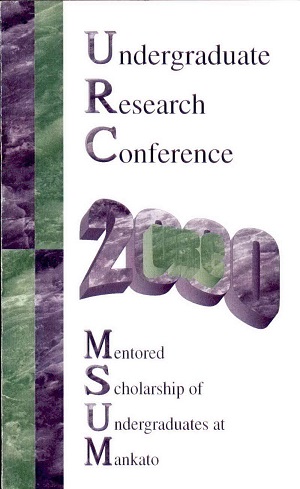A Critical Look at Archaeoastronomy and the Anasazi Culture of the American Southwest
Location
CSU
Student's Major
Anthropology
Student's College
Social and Behavioral Sciences
Mentor's Name
Paul Brown
Mentor's Department
Anthropology
Mentor's College
Social and Behavioral Sciences
Description
For as long as humanity has existed, it has been in a slate of constant flux between survival and the elements. Dependent upon both the earth and sky for survival, cultures around the world have found differing ways of dealing with such a precarious balance. Archaeoastronomy studies how different cultures have dealt with such a strange balance by examining the ways cultures have related to terrestrial and cosmological events. Yet, being a rather young branch of archaeology, the question of whether archaeoastronomy truly accomplishes its end, to study cultures and the celestial phenomena celebrated or marked by them, remains to be seen. Has archaeoastronomy begun to accomplish its goal of understanding a culture on an astronomical basis? If so, what impact has this had on the general archaeological community at large? These questions have plagued the science of archaeoastronomy and at their basest level delve into the very theoretical, methodological, and epistemological foundations of archaeoastronomy itself. The following presentation takes a critical look at the methodological concerns facing archaeoastronomy as they relate to the rich archaeological history of the American southwest, and specifically to the fantastic and mysterious culture of the Anasazi.
A Critical Look at Archaeoastronomy and the Anasazi Culture of the American Southwest
CSU
For as long as humanity has existed, it has been in a slate of constant flux between survival and the elements. Dependent upon both the earth and sky for survival, cultures around the world have found differing ways of dealing with such a precarious balance. Archaeoastronomy studies how different cultures have dealt with such a strange balance by examining the ways cultures have related to terrestrial and cosmological events. Yet, being a rather young branch of archaeology, the question of whether archaeoastronomy truly accomplishes its end, to study cultures and the celestial phenomena celebrated or marked by them, remains to be seen. Has archaeoastronomy begun to accomplish its goal of understanding a culture on an astronomical basis? If so, what impact has this had on the general archaeological community at large? These questions have plagued the science of archaeoastronomy and at their basest level delve into the very theoretical, methodological, and epistemological foundations of archaeoastronomy itself. The following presentation takes a critical look at the methodological concerns facing archaeoastronomy as they relate to the rich archaeological history of the American southwest, and specifically to the fantastic and mysterious culture of the Anasazi.




